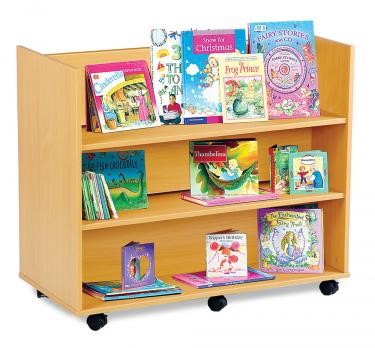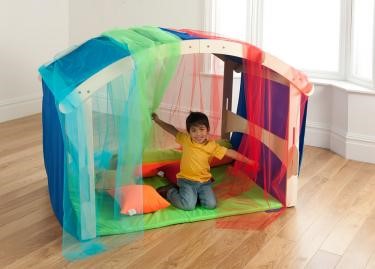Why is reading so important?
Enjoying books and reading stories from a very early age is crucial in the development of children. It helps with their ability to understand words, use their imagination and develop their speech, as well as being something they really enjoy.
Teachers and parents play a huge part in the development of reading skills in young children. The more children experience books the more they will gain the interest and passion for them. Reading offers so much more than just quiet time in a cosy corner. It helps to develop spelling, listening, writing, literacy and social skills.
Young children need to be able to experience books; they need to be able to understand and enjoy stories, books, rhymes and songs and listen and respond to them with curiosity and enjoyment.
This will promote the value and pleasure of reading and encourage an interest in reading throughout school and in later life.
Even from a very young age child love books. It provides the opportunity to learn through touching and feeling different textures, along with experiences different actions.
There are some great early years books with pop up pages, lift-the-flap pages, noisy pages and different textured pictures to really get babies and toddlers engaged with books.
Children develop more rapidly during the first five years of their lives than at any other time. That's why they are called the foundation years – the building blocks for life! Throughout these important first years if they attend a nursery, pre-school or primary school, their progress will be monitored.
Below is a guide, set by early years’ foundation, to explain the various stages children are monitored and milestones they might reach in terms of literacy.
8-20 months
A child should have an interest in holding and looking at books by this age. It is important they can hold books so they can see what is going on whilst listening to you read the stories. They can learn what books are and play with pages.
16-26 months
By this age most children can identify their favourite books and stories they want to see and hear. They can recognise and mimic actions from their favourite songs and stories. Encourage this by always letting them join in with storytelling and songs, let them point to things they can recognise or make the sounds of things in the book.
22-36 months
By the age of three, children should be able to fill in missing gaps in stories and songs that they have heard repetitively. They have their favourite books and songs and they can help to tell the tale. By pausing during a story they know well you give them the opportunity to fill in the gaps and add more words to their vocabulary.
30-50 months
By four, children should be able to recognise the story being read to them, they can help with telling the story and can anticipate the end of the story. They should be able to join in with rhymes and be able to recognise words that start with the same sound such as ‘big boat’. They should also be able to recognise words that mean something to them, such as their own name or mummy, favourite shops and places.
They can sit and listen for longer and can hold the book correctly and turn pages by themselves.
40-60 months
By the age of five, a child is expected to be able to remember and speak words that rhyme like cat and hat and sat. Their imaginations and vocabulary mean they are able to tell their own made up stories and can make up their own songs. Story time doesn’t mean you just read to them – it’s far more interactive.
They can understand and read simple sentences and they use their phonics knowledge to sound out words to read them accurately. They can also demonstrate a real understanding of what has been read or said to them.
Reading At School
Children usually start school between 4-5 years old. By this time, it is likely they will be able to recognise letters, understand words and have fairly good listening skills and be able to deal with the changes in routine.
A typical school day in reception does feature some routine and structure, however, it still involves quite a lot of free play.
To encourage reading, teachers usually have story time which involves children sitting together on the classroom carpet. Group reading and reading out loud helps to boost confidence in children and encourages interest and interaction.
A fun group task is to read and act out the book together. Children will bounce off each other and shine. Imaginations run wild in young children and role play can also help make reading fun. Play is the best form of learning in early years as it develops a whole host of communication, reading and language skills.
Having a well-equipped school library or classroom reading area will also help to encourage reading. Most children, and even adults, like to sit down and get comfy so that they can free their mind and travel into their story book.
Creating The Perfect Classroom Reading Corner
A library or classroom reading corner should create excitement for reading before the child has even selected a book. It needs to be visually appealing and stimulating and have an interesting and age appropriate selection of books to read.
Setting up your reading area can be a challenge as you need to leave enough space for seating and movement with a wide variety of books as well as somewhere to store them. All this needs to look visually appealing to a child too!
We offer a wide range of book storage solutions that will help you to create an exciting, stimulating classroom reading corner.
It’s important the books are easily accessible and easy to view. Our mobile book trolleys are double sided which allows children to access books easily from each side. The Kinderboxes come in a range of shapes, styles, sizes and colours which make an interesting book display.

Our book spinners are ideal for a smaller area. They can hold many books and don’t take up too much room. Kids also love spinning them to find the right book.
Having somewhere for children to sit and look at books is important. You can provide floor cushions or bean bags with a low level book storage display such as a kinderbox, or book trolley. This will create the perfect reading area for young children.
If you have a large space for your reading area our animal-themed book browsers are great fun and provide plenty of space for book as well as areas for children to sit. Children can get snappy with the Crocodile Book Browser or blow the trumpet of the Elephant Book Browser!
Alternatively you can add the indoor outdoor wooden folding den to create a magical space for children. Add the rainbow accessory kit for colour and to spark imagination and fun.

Reading at home
With so many books to read and enjoy there just isn’t enough time in a school day to discover all there is to enjoy with reading. Support from parents and carers with reading at home is just as important to a child’s development.
Every child loves spending time with their parents and enjoys listening to them and interacting with them. Sharing a book together is a special time with the added benefit that it’s not just for entertainment but helps develop their concentration and understanding of language. Children who don’t get the reading support at home from parents and carers often come to reading at a disadvantage.
It is never too early to start sharing books with your child, even as young babies they enjoy, and will learn from, hearing stories and looking at books. Research shows that reading at home with their child is the single most important thing a parent can do to help their child’s education.
Try to set aside time each day to sit and share a book. Turn off distractions such as the TV and mobile phone and have some quiet time together getting lost in a story. Talk to your child about the pictures, ask them what they can see and what they think is going to happen in the story. Doing this little and often is best so that you don’t lose your child’s focus and attention, but by all means read for longer if that’s what your child wants.
Be a reading role model to your child – if your child sees you enjoying a book, they will show an interest too.
At ELF we are experts in early years’ educational resources and supply classroom furniture, library furniture and equipment to primary schools, pre-schools, nurseries and playgroups. For more information about our library furniture or any of our products please contact us or call our sales team on 01733 511121.
Permalink:
https://www.earlylearningfurniture.co.uk/blog/the-importance-of-early-years-reading.aspx